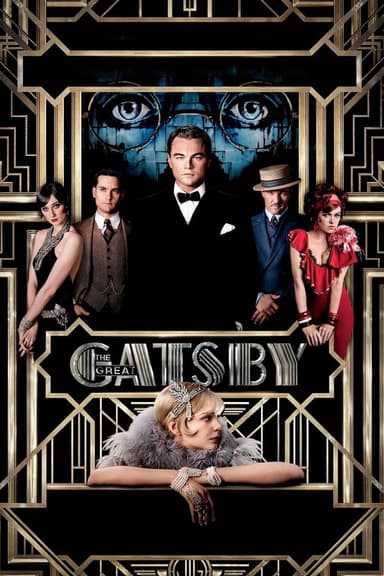
The Last Tycoon
1976 • Drama, Romance • PG
Monroe Stahr, a successful movie producer, pursues a beautiful and elusive young woman — all the while working himself to death.
Runtime: 2h 3m
Why you should read the novel
If you're fascinated by classic Hollywood and the glamorous yet ruthless world of film studios, reading F. Scott Fitzgerald’s The Last Tycoon is a must. The novel provides a richly layered inside look at Golden Age Hollywood, drawn from Fitzgerald’s own experiences among the studio elite. Unlike the movie adaptation, the book lets you immerse yourself in subtle narrative details, complex character thoughts, and social critique that only a literary master like Fitzgerald can provide. By picking up the novel, you not only enjoy an essential American literary work, but you gain deeper insight into the ambitions, heartbreak, and creative politics of 1930s Hollywood. Delve into Fitzgerald’s unfinished masterpiece to experience the poignant atmosphere and sharp observations that inspired generations of writers and filmmakers. Reading The Last Tycoon allows you to appreciate Fitzgerald’s signature prose and the legacy of his final, albeit incomplete, literary endeavor far beyond what the film can portray.
Adaptation differences
One of the main differences between the 1976 film adaptation of The Last Tycoon and F. Scott Fitzgerald’s original novel lies in the story’s completion and structure. Fitzgerald died before finishing the novel, resulting in an unfinished narrative and open-ended character arcs, while the film necessarily invents its own resolutions and conclusions for the sake of a coherent storyline. This leads to differing interpretations of key characters, especially Monroe Stahr, whose motivations and fate feel more ambiguous in the novel but are more firmly defined in the cinematic adaptation. The movie also alters or omits several subplots and characters, streamlining the story to fit typical runtime constraints and audience expectations. As a result, some nuances—like the labor unrest and deeper social commentaries found in the book—are sidelined or reduced. In comparison, the novel spends more time on the internal struggles and psychological depth of Monroe Stahr, offering a multifaceted look at his relationships, ambitions, and the crumbling illusion of Hollywood’s golden era. Finally, Fitzgerald’s lyrical prose and unfinished drafts create an evocative, atmospheric quality that the film adaptation cannot completely capture, making the book a richer experience for readers seeking insight into both the story and Fitzgerald's perspective on art and life.
The Last Tycoon inspired from
The Last Tycoon
by F. Scott Fitzgerald











